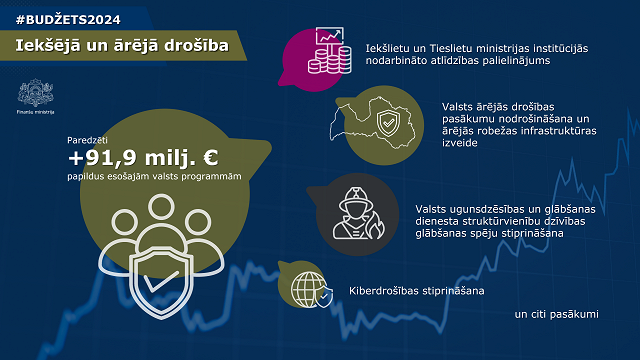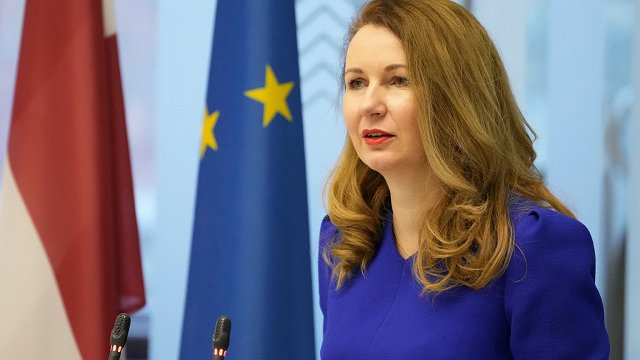The Health Ministry is requesting EUR 70 million from the 2019 budget to increase salaries, said Health Minister Anda Caksa (Greens/Farmers). Raising wages for healthcare personnel was named a priority already in 2017. This year, EUR 85 million has been allocated to increase medical workers' salaries by 30 percent. The salaries have to further increase 20 percent next year and in 2020, Caksa pointed out. However, Prime Minister Maris Kucinskis (Greens/Farmers) has said that the final decision on the 2019 budget will be taken by the next Saeima and next government.
The Education and Science Ministry needs EUR 5.834 million for raising school teachers' salaries next year, the ministry told LETA. Salaries for preschool teachers and free lunches will cost EUR 25.345 million next year, while teachers working in interest-related education will require additional EUR 202,515, the ministry told LETA.
The Justice Ministry's priority next year will be increasing salaries for judges, prosecutors and court employees, which will amount to approximately EUR 30.57 million, LETA learned at the ministry.
The Environmental Protection and Regional Development Ministry is seeking an additional EUR 3.9 million for increasing salaries next year, and Culture Ministry needs EUR 6.2 million.
The other ministries - Transport Ministry, Welfare Ministry, Interior Ministry, Agriculture Ministry, Defense Ministry, and Foreign Ministry - have not defined pay raises as their priorities next year.
As reported, Finance Minister Dana Reizniece-Ozola (Greens/Farmers) believes that Latvia should consider fiscal reserve in the 2019 budget instead of raising wages in the public sector.
The medium-term budget framework for 2018, 2019 and 2020 adopted by the parliament last November provides for a fiscal reserve at 0.1 percent of the gross domestic product (GDP) in 2018. There is no plan for a fiscal reserve in 2019, but in 2020 the fiscal reserve should be 0.1 percent of GDP again.
However, Reizniece-Ozola now said that the Finance Ministry will call to plan a fiscal reserve also in next year’s budget. The size of the fiscal reserve will be clear by fall when the macroeconomic forecasts are ready.
The Fiscal Discipline Council also in April this year said that the government should ensure a fiscal reserve in 2019.
Reizniece-Ozola said that the economy is developing, tax collection is very good, therefore in such times there is seemingly a wish to increase wages in the public sector.
"The demand of the Education and Science Ministry to raise teachers’ wages is not the only one. Additional financing is also required for wages of judges, medics. I am very cautious, however, because at present the average wage in public sector is higher than the average wage in private sector. It is not healthy. We should be careful with raising wages in the public sector too steeply. We should sooner think about a fiscal reserve rather than about quick distribution of all resources," the minister said.
LETA also reported, despite the earlier predicted negative fiscal space, ministries are demanding additional EUR 1.1 billion for their priority measures in the 2019 budget, according to the information at the disposal of the Finance Ministry.





























